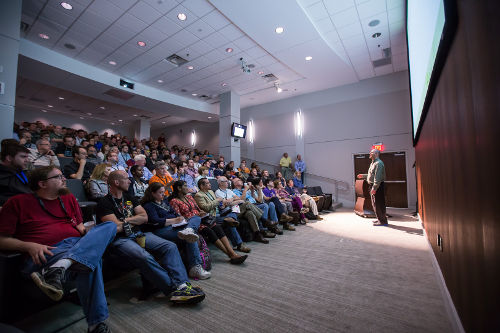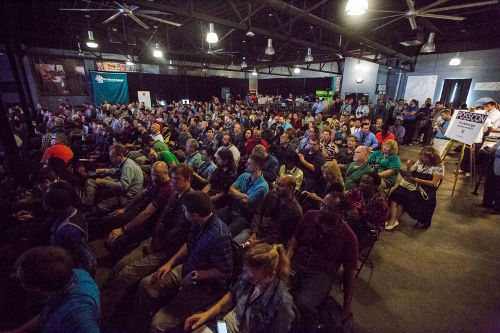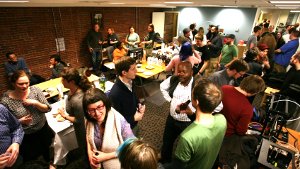FOSS Week in Review
Larry’s hanging out up near the 49th parallel, in Bellingham, Washington, for the LinuxFest Northwest conference. He’ll be filing reports over the weekend and possibly on Monday, so stay tuned. Meanwhile, I get to do the Week in Review — because the boss likes me best.
OSCON’s packing its bags
Speaking of conferences, OSCON’s making a big move. Although the annual conference presented by publisher O’Reilly Media started in my old stomping grounds of Monterey, California in 1999, the event has been held in Portland, Oregon every year since 2003, except for 2009 when it made a one-off stop in San Jose. This year OSCON will once again be held in Portland, on July 20-24, then that’s it, for at least a year.
 Late last week, Rachel Roumeliotis reported in a blog on the OSCON website that after this year’s event, the conference will be packing up and making a move. In 2016, OSCON will unfold it’s tents in Austin, Texas, with the conference being held May 16=20.
Late last week, Rachel Roumeliotis reported in a blog on the OSCON website that after this year’s event, the conference will be packing up and making a move. In 2016, OSCON will unfold it’s tents in Austin, Texas, with the conference being held May 16=20.
Why Austin? Cited for reasons are the city’s many software communities, such as All Girl Hack Night and Google Development Group Austin, as well as Texas based tech firms such as Rackspace, Dell, SoftLayer, Continuum, and OpenStack. It doesn’t look like this move will be permanent, however. According to the post: “As with OSCON in Amsterdam…we want to explore these communities and offer those software engineers and architects the OSCON experience.”
Christine Hall has been a journalist since 1971. In 2001, she began writing a weekly consumer computer column and started covering Linux and FOSS in 2002 after making the switch to GNU/Linux. Follow her on Twitter: @BrideOfLinux



 Late last week, Rachel Roumeliotis reported in a
Late last week, Rachel Roumeliotis reported in a 
 But what’s more important than those two items at the moment — we can deal with those later — is that LinuxFest Northwest is ramping up its 15th annual show in Bellingham, Washington, this week.
But what’s more important than those two items at the moment — we can deal with those later — is that LinuxFest Northwest is ramping up its 15th annual show in Bellingham, Washington, this week.
 Changing someone’s world.
Changing someone’s world.




 Oh wait…no I didn’t.
Oh wait…no I didn’t.

 Actually, of course, it’s not about winners and losers. It’s about what you like. It’s about preferences. After all, unless you’re a diehard command line person, the desktop is how you interact with your computer.
Actually, of course, it’s not about winners and losers. It’s about what you like. It’s about preferences. After all, unless you’re a diehard command line person, the desktop is how you interact with your computer.